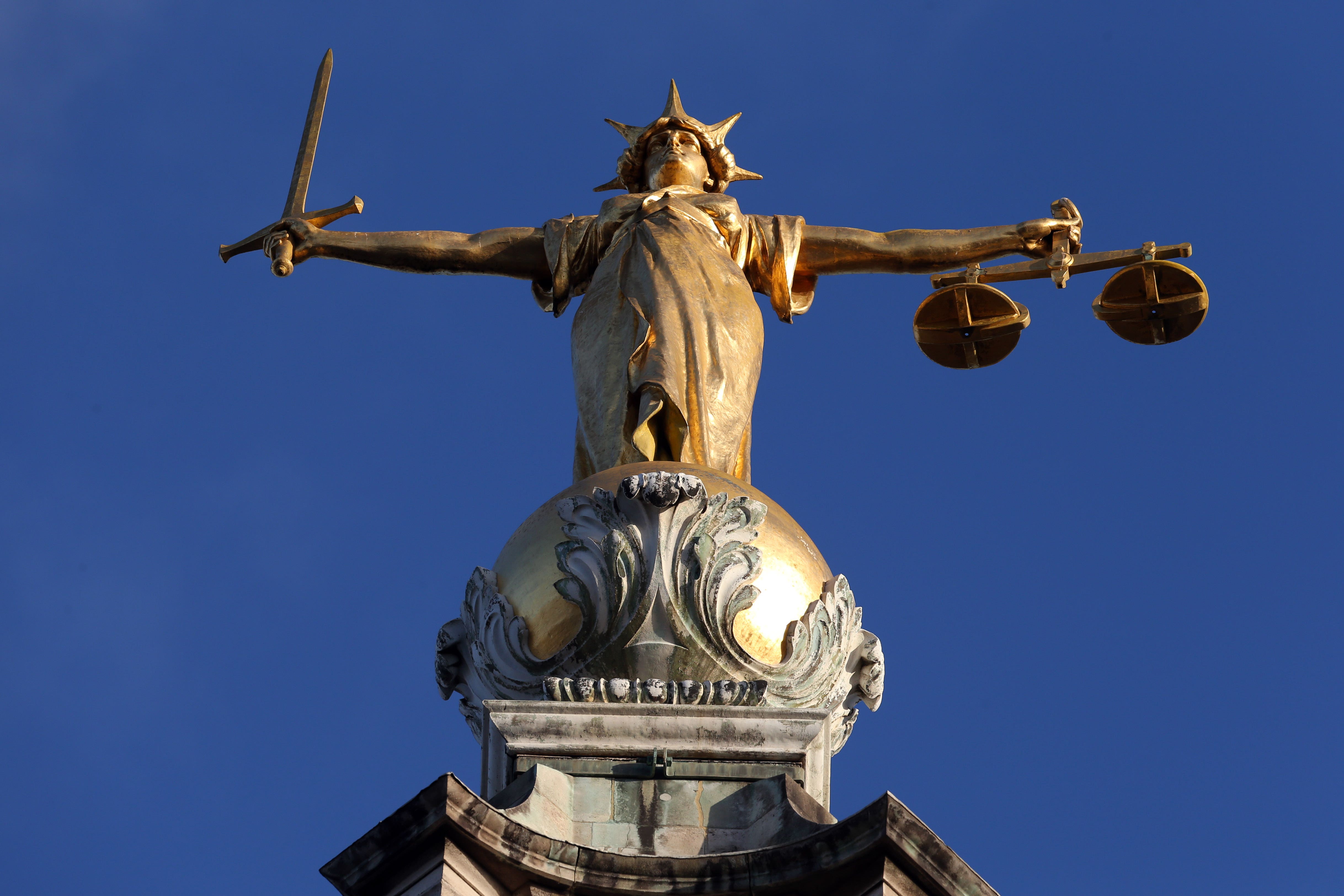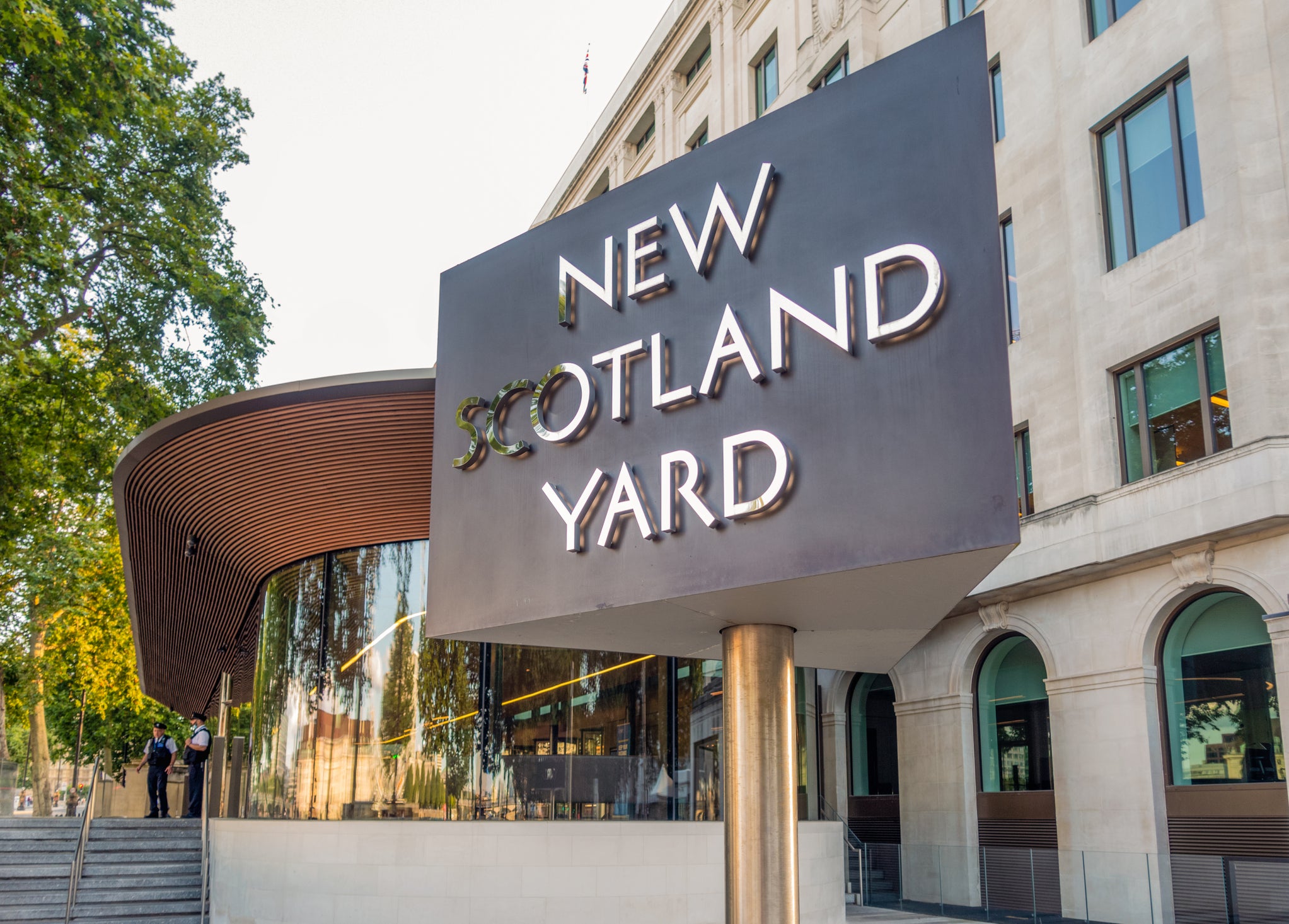‘I was treated like a suspect’: Rape victim’s stark warning after long battle for justice
Exclusive: Police initially closed investigation into stranger who claimed ‘rough sex’ defence

A rape victim who fought a gruelling three-year battle for justice only to see her attacker walk free has warned of a “national crisis”.
Alison* told The Independent that she was raped by a stranger in 2019, leaving her with internal injuries and bruises, after she woke to find him attacking her in bed.
The Metropolitan Police initially discontinued the investigation, before performing a U-turn after her family pleaded for them to reopen the case.
The Crown Prosecution Service (CPS) did not lay charges for over two years and weeks after the third anniversary of the attack, the perpetrator was acquitted by a jury after claiming they had “consensual rough sex”.
“I felt a bit broken,” Alison said. “When I got the court date it was such a relief.
“I thought in my head ‘once that happens I can be happy again and life will just be better’, but obviously it doesn’t work like that.
“It’s something that doesn’t just go away. I’ve learnt to bear it now but I didn’t get the justice that I deserved.”
Alison believes the lack of convictions for rape has become a “national crisis” in the UK, with only 1.3 per cent of offences reported in England and Wales currently charged within a year.
The former victims’ commissioner, Dame Vera Baird KC, said the system was “in chaos” and that Alison’s case is an illustration of systemic issues facing many victims.
“What is quite clear is that she had to fight from the start to stand this case up,” she told The Independent.
“It’s an abysmal example of the lack of will to support victims and fight their case.”
Alison was a student in London when the attack happened after a night out with friends, first to a pub and then a house party, in early 2019.
She said she “blacked out” and woke up hours later, while being attacked by a stranger who had attended the same party.
“My head was banging against the headboard, that’s how I woke up,” Alison said.
“I got up really quickly and pushed him off, then he got in front of the door and I said I was going to scream.”
Two people came running out of their rooms and witnessed the scene.
Alison told how she ran outside without her shoes on and got a taxi home, before calling one of her friends to ask what happened the night before.
The friend told her she had become very drunk, collapsed and started “projectile vomiting” in front of party guests including her attacker.
She was carried to bed and left “passed out” in an upstairs bedroom while the party continued, and the man was later put to sleep in a downstairs room.
Alison said that after fleeing, she was initially “in denial” but was convinced by a friend to go to a specialist clinic after feeling pain and finding blood in her underwear the following day.
Checks at The Havens found that she had suffered internal injuries and “signs of forced entry”, as well as bruises on her leg and head.
Two days after the attack, she went to a police station to make a report, but said she was discouraged by officers and told that if she went ahead the case would be “horrible”.
“They told me they were going to have to go through all my files, everything from all my old schools, they would need me to hand over my phone,” Alison recalled, saying officers told her it was necessary to check for evidence of her lying or making the report “to get revenge”.
“I started crying,” she said. “I had been there for hours, I was overwhelmed and nervous … I felt like I was being treated like a suspect rather than a victim.”
The Metropolitan Police did not seize Alison’s phone but had her sign a statement giving blanket access to any school, counselling and medical records.
After the intrusive medical examination, hours of questioning and a distressing video interview, detectives launched an investigation but discontinued it after seeking advice from CPS.
They decided that the case would “fail to meet the evidential test” but performed a U-turn after Alison, her mother and a relative who was a serving police officer pleaded for the case to go ahead at a meeting in summer 2019.
Although the investigation was reopened, the Metropolitan Police did not send a file of evidence for the CPS to make a charging decision until March 2021 – two years after the rape.
During the long delay, Alison said police approached her to ask for pieces of evidence they had lost and for more statements.

The man was charged in 2021 but the trial did not take place until earlier this year, amid rising court backlogs, and Alison was summoned to give evidence and then sent away because of a delay with the defendant’s translator.
When she was called back for questioning the following day, she said a defence barrister accused her of “flirting” with the attacker, of graphic sexual conduct and of lying about being raped because she was “embarrassed” about having sex.
“He said it was consensual rough sex,” Alison said. “I’d say ‘no’ and [the barrister] would say it again in a different way, and I’d still say no. It was ‘isn’t it true that, isn’t it true that?’ It was like he had already come to a conclusion and he was getting me to agree with him.”
She said that because more than three years had passed since the incident, there were some details she was unable to remember and she fears her honest answers may have made her look less convincing to the jury.
Claire Waxman, the London victims’ commissioner, said there was a “complete imbalance” between the preparation for defendants who give evidence compared to their victims.
“You’re trying to think and the jurors are interpreting that as ‘you’re lying’ because you’re not responding quick enough,” she added.
“For many rape victims it’s three or four years to trial and they’re traumatised. It affects memory and recall and they’re working through a layer of fog.
“Jurors need to understand the legal definition of consent and the impact of trauma or we’re setting up rape victims to fail.”
Jayne Butler, the chief executive of Rape Crisis England and Wales, said Alison’s case contained “examples that are going on across the board”.
“So few cases are getting to the stage of going to court, never mind a conviction,” she added.
“The idea that the numbers are so low because victims are lying is just not true.
“The effect is that it feels like if something happens to us there’s no point reporting to the police, so why would rapists stop?”
Kate Ellis, a solicitor at the Centre for Women’s Justice, said the issues experienced by Alison were “very common in rape cases”.
“There is a real concern with the adversarial process that we have and if it’s fit for sexual offences where the whole trial seems to hinge on the victims’ credibility,” she added. “It differs from a lot of other areas of crime in that respect.”
Alison said the past three-and-a-half years had been a “very dark time”, where the uncertainty over the case meant she felt trapped and “couldn’t fully enjoy anything”.
“I don’t have faith in the justice system anymore,” she said. “If something went wrong I don’t feel safe.”
The Metropolitan Police said it was working with the CPS to improve the early stages of rape and sexual assault investigations.
Lead responsible officer Detective Superintendent Nicola Franklin said: “Rape is one of the most complex crimes the police investigate, with many evidential challenges for both police and the wider criminal justice system. We are absolutely committed to improving our response to rape and sexual assault and getting justice for victim-survivors.”
A spokesperson for the CPS said it had “a duty to test the evidence to ensure the right person is convicted of the right offence” but added: “We are working closely with police to drive up the number of rape cases going to court and make lasting changes for victims of these offences.”
A government spokesperson said: “We are overhauling our entire response to rape – boosting support for victims at every stage of the justice system, rolling out a new suspect-centred approach to police investigations and improving collaboration between police and prosecutors so we can double the number of cases being charged and reaching court.
“This is alongside investing half a billion pounds to reduce wait times in the courts and recruiting more independent sexual violence advisors so no victim is left to suffer alone.”
* Names have been changed to protect anonymity
Rape Crisis offers support for those affected by rape and sexual abuse. You can call them on 0808 802 9999 in England and Wales, 0808 801 0302 in Scotland, and 0800 0246 991 in Northern Ireland, or visit their website: www.rapecrisis.org.uk. If you are in the US, you can call Rainn on 800-656-HOPE (4673)



